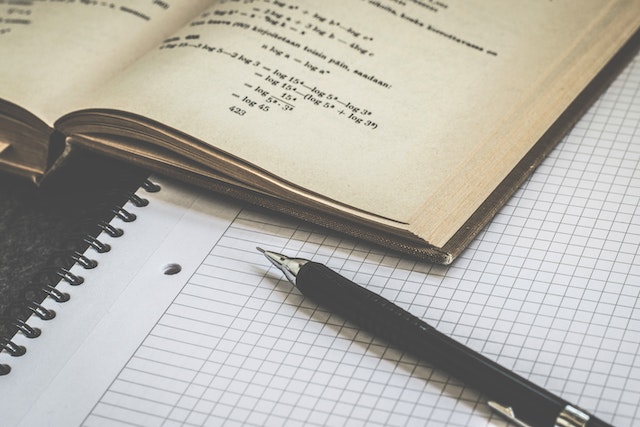As the temperatures start to drop (a little bit) and the leaves begin to fall, we also realize that finals are looming on the horizon next month. For that reason, I wanted to share a couple of evidence-based study tips today. So, if you are looking to revamp your study routine, maybe one of these strategies is right for you!
Study Tip #1: Space out your studying
Research shows that spacing out study session helps retain more information than cramming everything into one session. In this 2009 experiment by Kornell, students studied vocabulary words with flashcards – some in many shorter sessions, others in fewer longer sessions, while spending the same amount of time overall. Testing at the end of the experiment showed that the group who studied in more frequent shorter sessions performed better than those who had crammed it all into fewer sessions.
So, take a look at your finals schedule and map out a plan for multiple shorter study sessions for each class instead of pulling all-nighters the night before each exam.
Study Tip #2: Practice makes perfect
The best way to study for many classes is doing practice problems – and lots of them. Research shows that to retain information, we have to do more than just read the textbook. A 2009 study by Callender and McDaniel showed that there was little difference in terms of test performance between two groups of students who read a text once or twice and took a test immediately after.
Studying can be compared to a musician practicing a piece of music or an athlete training for their event – it is not enough for them to hear others perform the piece or watch somebody make a free throw, but instead the musician and athlete have to acquire the skill through practice. The same holds true for learning. Reading the text or watching a video where the instructor solves a practice problem is like watching LeBron James play basketball. To get good at it, you’ll have to work through some practice problems on your own! But don’t just take my word for it – this 2013 study by Rawson et al. shows that students who regularly took practice tests on average scored more than a full letter grade better than those who studied the conventional way.
So, whether it is working practice problem sets that your professor provided or solving questions from the textbook, get ready to practice!

Study Tip #3: Mistakes are an opportunity to learn
I know, I know… nobody likes to make mistakes, but when studying, they can sometimes be a good thing! As biologist Stuart Firestein argues in his book “Failure: Why Science is So Successful”, making mistakes is a primary key to learning. Or, take my anecdotal evidence for it – I made a very embarrassing mistake on a spelling test in elementary school and haven’t misspelled that word since (for those who know German – it was naemlich) 😊
What this means for you is that it’s ok to make mistakes on practice questions or low-stake assignments – that’s what they are there for. Hopefully, making the mistake and figuring out why your approach was wrong will sear the concept in your memory just like I won’t ever forget how to spell this German word. If you can’t figure out where you are going wrong – your professors at WT are willing to help, so go to their office hours or send them an email.

You got this!
I hope these tidbits were helpful if you are looking for something new to try for your study routine. Now that you’ve got a plan, hit the books, get studying and good luck on finals! For additional success tips, also check out this post by Dr. Ramos Salazar.
Anne Barthel
Associate Professor of Economics and Decision Management & Hodges Professor of Business
References
Callender, A. A., & McDaniel, M. A. (2009). The limited benefits of rereading educational texts. Contemporary Educational Psychology, 34(1), 30-41.
Kornell, N. (2009). Optimising learning using flashcards: Spacing is more effective than cramming. Applied Cognitive Psychology: The Official Journal of the Society for Applied Research in Memory and Cognition, 23(9), 1297-1317.
Rawson, K. A., Dunlosky, J., & Sciartelli, S. M. (2013). The power of successive relearning: Improving performance on course exams and long-term retention. Educational Psychology Review, 25(4), 523-548.



